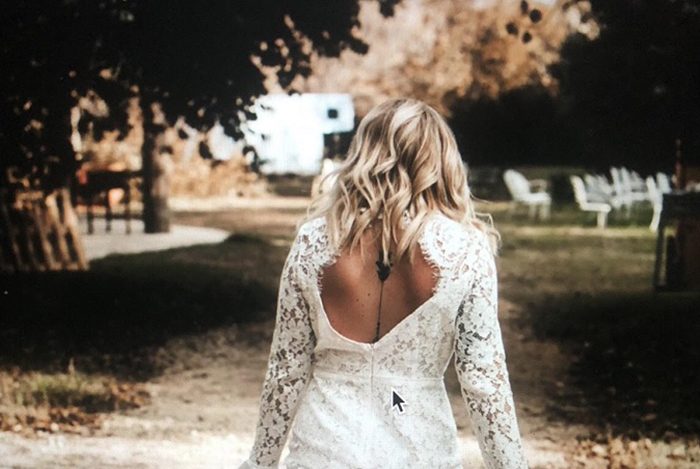I was staring at the note I had just written, quickly scribbled on a notebook I had found in the bathroom.
I’m a writer and my husband continually teases me that even my short emails to him are written in a way that flows. Yet this letter, the last letter I would write, was none of that—it was bland. It said only that I could no longer deal with the darkness, that it wasn’t their fault, and that I was sorry.
I left that letter—my suicide letter—on the floor of the bathroom. Then I stepped onto the edge of our tub…
My last memory was of my breath becoming shorter and my vision blurring out.
I woke up, not dead. My husband, having heard a thud from the shampoo bottles falling to the floor, had managed to get into the bathroom, lowered my unconscious body to the floor, and sat with me until my eyes opened.
I remember feeling a sense of relief—relief that I was still here, that I was alive. But I also felt a heaviness because my life was still dark. I couldn’t find the light and I didn’t know how to live in this world any longer.
I was going to therapy. I was on antidepressants. Yet still, I had tried to take my life.
Suicide is often seen as a selfish choice. How can someone take their life, leaving behind people who love them? I can remember judging other parents who had chosen suicide—didn’t they know the pain they were leaving their children with?
Well I’m a mother and I love my children more than life itself. I would never intentionally hurt them, but I did tried to kill myself.
In that moment, for me, suicide wasn’t a choice. I was drowning in darkness, unable to tread water any longer. I didn’t want my children to remember a mother who could no longer smile, a mother who couldn’t get out of bed. I felt as though I was a burden to my family, that I was hurting them with my depression, with my darkness. The depression had convinced me that my life was no longer worth living; it had whispered in my ear that the only right thing to do—the only thing that would prove my love to my family—was to kill myself.
Suicide is a word that as a society we don’t speak of often, unless a celebrity dies from it. When Robin Williams died, we sobbed, unable to understand how a man so gifted, so funny, had felt so dark, so alone. For weeks, we spoke of the need to be more open about depression, the suicide hotline was shared everywhere, and then it faded. There was a new news cycle, a new story.
A few weeks ago, both Anthony Bourdain and Kate Spade died by suicide, within a few days of each other. In the following days, we were bombarded by posts about depression. Then, like every time before, it faded. We will see these kind of stories again, when another well-known person dies this way, and we will react with shock and sadness, we will judge, we will wonder what made them chose that path, and then it will vanish again into the background.
I understand it. In fact, I was that person—the one who judged, who wondered, who couldn’t understand how someone could do that—until it happened to me.
Depression is the mute button on our lives; it distorts our truth, convincing us we are nothing but a burden. Depression takes away our hopes, our dreams, our smile, and our laughter. Yet most people stricken with depression are masters of the art of deception.
I hid behind a smile and learned to mask a pain I could not understand. I laughed for my family and friends, when in reality I was crying inside, dying inside. For the longest time, I didn’t talk about my depression because I couldn’t stand the shame. I had grown up in a society that blamed those who died by suicide. So I stayed silent, I struggled alone—not because I wasn’t loved, not because I didn’t have a support system, but because I was ashamed.
The shame is what we need to end. We need to speak honestly about depression, and not just when a celebrity dies, but always.
We need to educate ourselves and those we love. Depression isn’t a choice, and suicide isn’t a conscious choice—because it’s not one made with a clear head. Suicide is a moment: a moment when the darkness was too great, a moment when the depression was too convincing, a moment when we believed we were the problem, the burden.
We aren’t depression, and we aren’t the choices made during those moments of darkness. We are people, flawed and struggling, yet just like you. Depression isn’t biased—it doesn’t care about our jobs, our families, our lives. It can chose the wealthiest of us and the happiest of us, and try to steal all we have and all we are.
But I believe we can be greater than depression. I believe we can beat suicide, but only if we as a whole start openly talking about our struggles. We need to stop living our lives through Instagram filters and finally realize that our lives are enough. The good, the bad—all of it is worth it. Because life isn’t measured by likes and clicks; life is measured in breaths.
In that last first kiss.
In the laughter shared between friends.
In your child’s first step.
In the little moments—the walks in the sunshine and dances in the rain.
In the big moments—the weddings, births, and unforgettable trips.
Life is worth every moment, every tear, every heartache, so when you feel as though you can’t go on, fight that urge. Call a friend, the suicide prevention hotline, or go to a hospital. Do whatever you can to silence the depression, because it is lying to you when it says life isn’t worth it.
Let yourself feel the darkness, but don’t live there. Instead, cherish the moments that are light and love.
Let yourself cry, but do so knowing that life will go on and laughter will come again.
Most of all, be honest. Tell your circle, your family, your world that you are hurting—do not hide in a shame that isn’t yours. Say it out loud: “I’m depressed and sometimes I think about not wanting to live.” Take the power away from your depression.
In your darkest moments, choose the light—however small—and believe that it will get better. You will get better.
~









Read 39 comments and reply